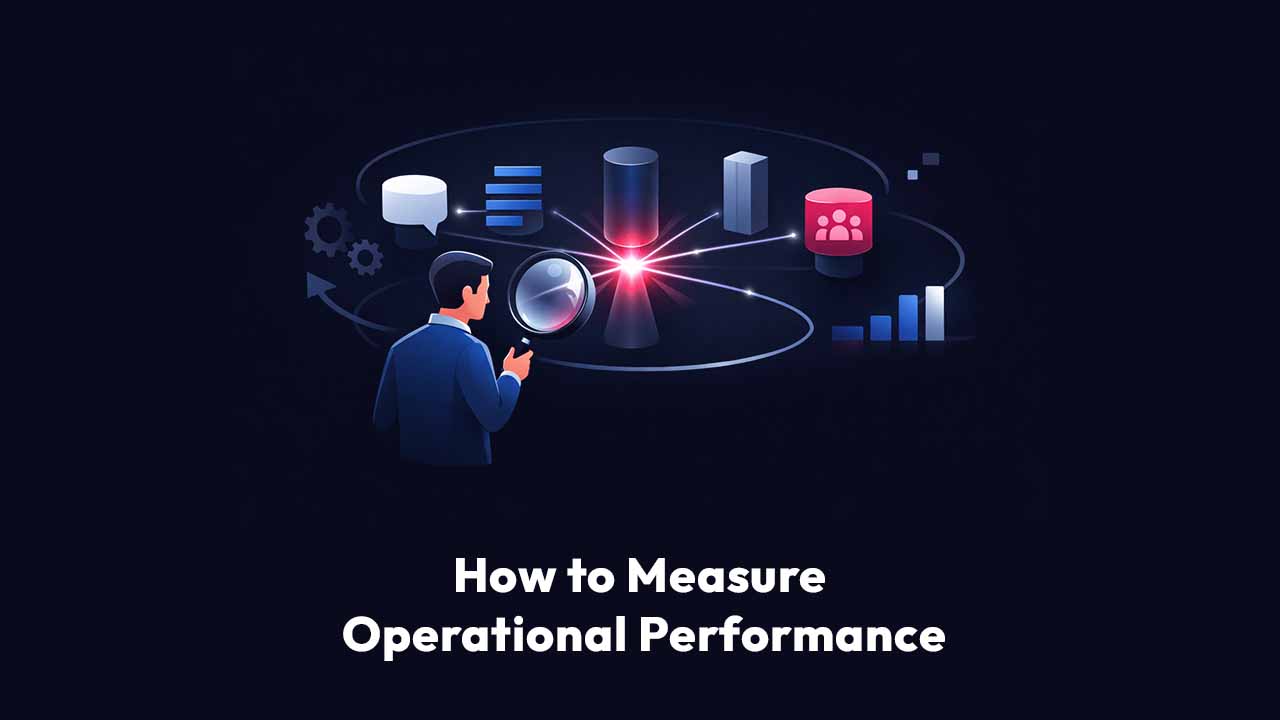Understanding the Role of FinOps Teams
Before we dive into the challenges, let's take a moment to understand the intricate role of FinOps teams. At its core, the intersection of finance and operations defines their purview. They bridge the gap between financial planning and execution, ensuring that every dollar is allocated wisely and every financial decision aligns with operational objectives.
FinOps teams play a pivotal role in the strategic direction of an organization. By analyzing financial data and operational processes, they provide valuable insights that help drive efficiency, optimize resource allocation, and maximize profitability. This collaborative approach between finance and operations is essential for sustainable growth and competitive advantage in today's fast-paced business environment.
The Intersection of Finance and Operations
FinOps teams act as the liaisons between finance and operations departments, forging a symbiotic relationship that drives efficiency and profitability. They work closely with cross-functional teams to understand the financial implications of operational decisions and provide insights that shape strategic planning.
Moreover, the collaboration between finance and operations extends beyond day-to-day tasks. FinOps teams also play a crucial role in long-term financial planning, capital investment decisions, and risk management strategies. By aligning financial goals with operational objectives, they help organizations navigate complex challenges and seize opportunities for growth.
Essential Responsibilities of FinOps Teams
From budgeting and forecasting to financial analysis and reporting, FinOps teams wear many hats. They are the gatekeepers of financial data, responsible for creating accurate financial reports, monitoring key performance indicators, and providing timely insights to drive informed decision-making. Their work nurtures financial stability within organizations and enables growth in a dynamic business landscape.
Furthermore, FinOps teams are instrumental in fostering a culture of financial accountability and transparency within an organization. By implementing robust financial controls and compliance measures, they safeguard the company's assets and ensure regulatory compliance. This proactive approach not only mitigates financial risks but also enhances the overall financial health and reputation of the organization.
The Complexity of Financial Operations
Financial operations can be likened to an intricate dance, with various moving parts that require careful synchronization. Let's explore two challenges that FinOps teams must navigate with finesse.
Delving deeper into the realm of financial operations unveils a myriad of complexities that require adept handling. Beyond the surface level, FinOps teams are tasked with not only managing day-to-day financial transactions but also strategizing for long-term financial health. This includes forecasting cash flow, mitigating financial risks, and optimizing financial processes to ensure sustainable growth and profitability.
The Intricacies of Financial Management
Managing finances can be akin to juggling chainsaws – one wrong move, and disaster could strike. FinOps teams must maintain a delicate balance between cost optimization and resource allocation, ensuring that financial resources are allocated appropriately across departments. They must also stay up to date with evolving financial regulations and best practices.
Furthermore, financial management extends beyond mere number-crunching; it involves fostering a culture of financial responsibility and transparency within an organization. FinOps teams play a crucial role in educating stakeholders about financial performance metrics, budgetary constraints, and the importance of aligning financial goals with overall business objectives.
The Demand for Real-Time Data Analysis
In the era of big data, the ability to analyze information in real-time has become a necessity rather than a luxury. FinOps teams face the challenge of harnessing massive amounts of financial data and transforming them into actionable insights. By doing so, they enable business leaders to make data-driven decisions quickly and effectively.
Moreover, the demand for real-time data analysis underscores the importance of leveraging advanced financial technologies such as artificial intelligence and machine learning. These tools empower FinOps teams to not only analyze historical financial data but also predict future trends and outcomes with a higher degree of accuracy. Embracing technological advancements is essential for staying ahead in today's fast-paced financial landscape.
Challenge 1: Managing Rapid Technological Changes
In today's increasingly digital world, rapid technological changes have become the norm. This presents a unique set of challenges for FinOps teams.

The Impact of Digital Transformation on FinOps
Digital transformation has revolutionized the way organizations conduct their financial operations. Automation and AI are reshaping the financial landscape, automating repetitive tasks and improving accuracy. FinOps teams must adapt to these technological advancements to optimize their processes and enhance efficiency.
Adapting to Automation and AI in Finance
As automation and AI become integral parts of financial operations, FinOps teams must develop new skills to keep pace. They need to embrace emerging technologies and understand how to leverage them to streamline their workflows and enhance decision-making processes. By doing so, they can focus on value-add activities that require human expertise.
Furthermore, the integration of blockchain technology is also playing a significant role in reshaping financial operations. Blockchain offers enhanced security, transparency, and efficiency in transactions, which can benefit FinOps teams in ensuring the integrity of financial data and reducing the risk of fraud. Understanding the fundamentals of blockchain and its applications in finance is becoming essential for FinOps professionals to stay ahead in the rapidly evolving digital landscape.
Embracing Data Analytics for Informed Decision-Making
In addition to automation, AI, and blockchain, data analytics is another key technological advancement that is transforming the financial industry. FinOps teams can harness the power of data analytics to gain valuable insights into financial trends, customer behavior, and operational performance. By leveraging data-driven decision-making, FinOps professionals can make informed strategic choices that drive business growth and profitability.
Challenge 2: Ensuring Regulatory Compliance
In an increasingly complex regulatory landscape, compliance is a significant challenge for FinOps teams.

Navigating the Landscape of Financial Regulations
Financial regulations are continuously evolving, and non-compliance can have severe consequences. FinOps teams must stay updated with the ever-changing regulatory requirements and ensure that their organizations remain compliant. This involves implementing robust control frameworks, conducting audits, and mitigating risk.
The Role of FinOps in Risk Management
Risk management is an inherent part of financial operations. FinOps teams play a critical role in identifying and minimizing financial risks by implementing effective risk management strategies. By actively monitoring and analyzing financial data, they can identify potential risks and proactively mitigate them, safeguarding their organizations' financial health.
Challenge 3: Talent Acquisition and Retention
The success of any team is built on the foundation of skilled professionals. However, attracting and retaining top FinOps talent can be a challenge.

The Need for Skilled FinOps Professionals
FinOps requires a unique blend of financial acumen, technology literacy, and analytical thinking. Finding individuals who possess the necessary skills is no easy feat. Organizations must invest in attracting and developing top FinOps talent to ensure their teams thrive amidst the challenges of the fast-paced financial landscape.
The Challenge of Employee Retention in FinOps
In a competitive job market, retaining skilled FinOps professionals is vital. Providing opportunities for career growth, offering attractive compensation packages, and fostering a positive work environment are key strategies that organizations can employ to retain top talent in their FinOps teams.
The Power of FinOps Teams
Despite the challenges they face, FinOps teams continue to excel, finding innovative solutions to intricate problems. Their ability to adapt to technological changes, navigate complex regulations, and attract and retain talent makes them invaluable assets to organizations. By empowering FinOps teams and addressing their key challenges, organizations can unlock their full potential and drive financial success.
As FinOps teams navigate the complexities of financial operations, the need for efficient data management and real-time insights is paramount. Scoop Analytics offers a streamlined solution that empowers revenue, marketing, and finance operations teams to pull data from various sources, blend it effortlessly, and present it in an interactive format. Whether you're looking to enhance your weekly reporting, dive deep into campaign analysis, or manage financial planning with precision, Scoop is tailored to meet the demands of non-technical business analysts and operations teams alike. Embrace the efficiency, flexibility, and collaboration that Scoop brings to your data lifecycle management. Get started with Scoop today and transform the way your FinOps team drives financial success.








.png)